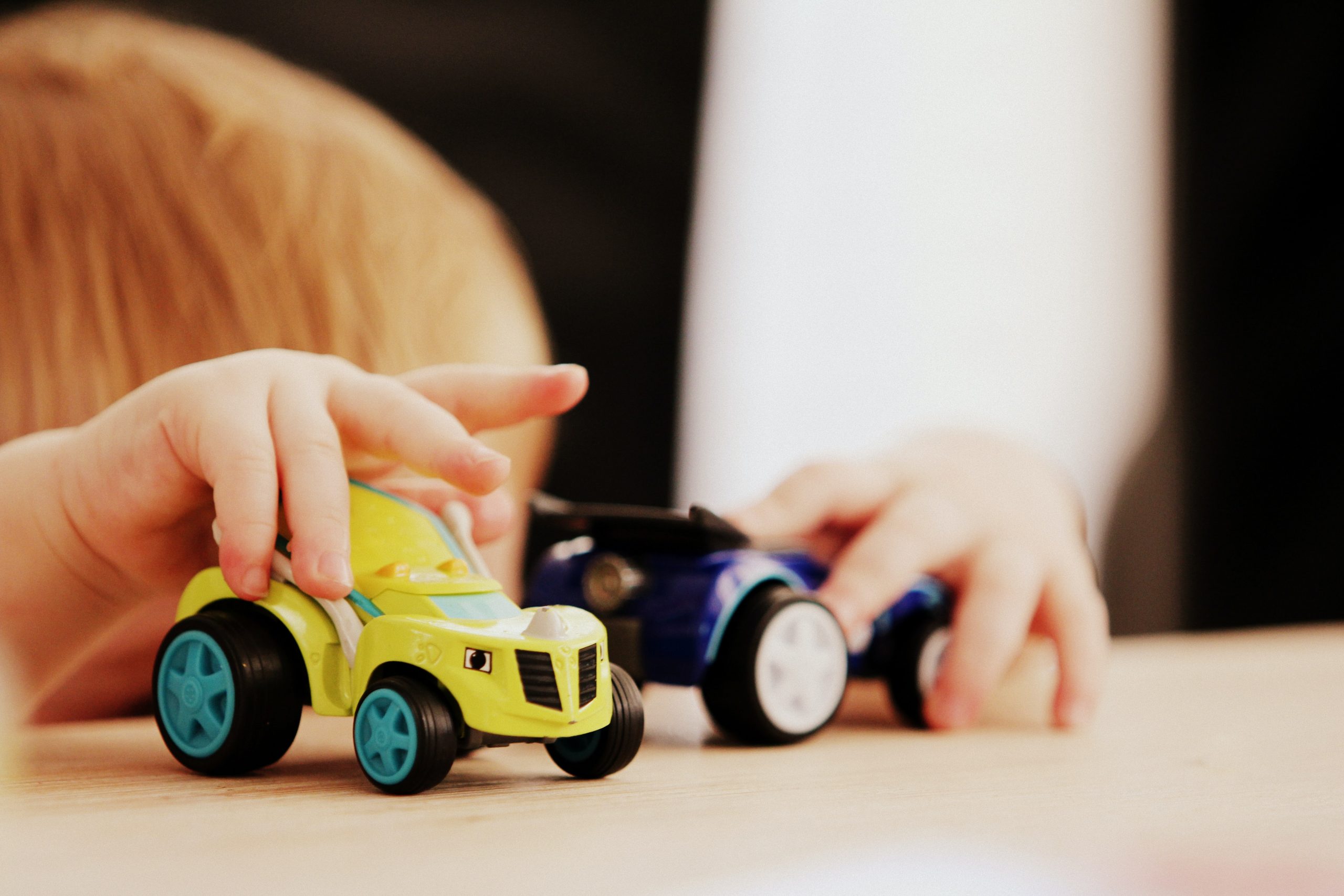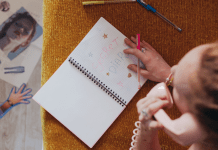Back when I was a new mom, I thought I had to play with my baby all the time. Even if my son was content, I felt guilty when I left him playing on the floor while I did dishes or scrolled through my phone. If I wasn’t entertaining him, I felt neglectful. Thanks to this (misguided) way of thinking, I didn’t do much to encourage independent play.
As my son got older, entertaining him became more exhausting. (Patty cake and peekaboo didn’t cut it anymore.) I needed a break, so we went on more outings, organized more playdates, and did more activities. I let the outside world do the entertaining, which took the pressure off of me a little bit.
When I had a second baby and the pandemic began a few months later, things got real.
No more playdates and activities to help me occupy my kids. Again, I was desperate for a moment’s peace, but I was stuck in a house with a baby and a 3-year-old who, unsurprisingly, expected my to-do list to have only one item: play with 3-year-old. He simply could not understand why I would need a break after a mere hour of pretending he was Brother Bear from the Berenstain Bears and I was every single other bear in Bear Country.
I was a little late to the party, but I finally started to work on encouraging independent play.
So far, it has been easier to do with my baby, especially since as a second child she has no choice but to play independently at times. I give her my undivided attention at many points throughout the day, but she also has time to play and explore without direction or intervention from me.
It’s been tougher for my son, since he has come to rely on my husband and me as his constant playmates.
But by stepping back a little and giving him more opportunities to play by himself, he’s gained confidence and learned he can do it. (Of course, it gets a little easier the older he gets, too.) For my part, I’ve learned to release some of the guilt I feel about saying “no” to play sometimes.
Here’s what has worked for us in our efforts to give this mama a much-needed break and encourage more independent play.
- Start early. Babies don’t need to be entertained constantly. They need time and space to just “be” and room to learn and explore. If you’re always in their face, you might be interfering with that important process. I didn’t recognize this with my first baby, but I did with my second and I hope she will be a little ahead of her brother in her ability to play independently.
- Set up an open, safe space for play. Our entire downstairs is one open space so it has to be entirely safe for the kids. This encourages independent play because if they get tired of their toys, they can move on to other areas and find more to explore in the cabinets/shelves that are accessible to them. It also allows me to sit back and interfere less in their play because I’m not worried about them getting into something unsafe.
- Provide open-ended toys. Toys that can be played with in different ways and that allow kids to use their imagination and creativity are better for encouraging independent play than toys with only one function (e.g. press this button and something happens). We love MagnaTiles and Brio trains especially.
- Play with water, mud, or sand. My kids seem to play the best when they’re outside and/or engaging their senses. We love our water table and sprinkler (and if indoors, our shower), and my son will play for a long time making “stew” with a bunch of bowls and shaving cream. A bucket, shovel, and pile of dirt also keep him occupied for a while. Another favorite is a plastic container filled with moon sand (8 cups of flour mixed with 1 cup of vegetable oil).
- Spend quality one-on-one time with your child. I notice that my kids do better at playing independently when we’ve already spent some time playing together, reading, or doing another activity. Sometimes I can be present while they’re playing initially, and then step away once they get engaged in an activity.
- Be a play supporter instead of a playmate. Taking advice from author and parent educator Janet Lansbury, I try not to direct playtime too much or take over, instead letting my son take the lead while I observe and narrate what he’s doing. That way I’m not stifling his creativity, and he’s learning that I don’t always have to be an active presence during playtime.
- Develop routines for independent play. It helps if kids know when they will be expected to play independently. We set up a daily “quiet time” routine for my son which has worked out well, but I’ve struggled to establish routines at other times of the day. It definitely helps if I give advance warning that he will need to play independently while I clean up or do another task.
- Remember that it’s okay to set boundaries. It’s hard for me to say, “No, I can’t play with you right now” because the “bad mom” feelings creep in. The truth is, though, that children need to learn that it’s healthy to set boundaries. And if I never say no to play, then I get burned out and that’s not good for me or my kids. I would rather say no sometimes so that when I do play, I can be present and give my kids my full attention and enthusiasm.










